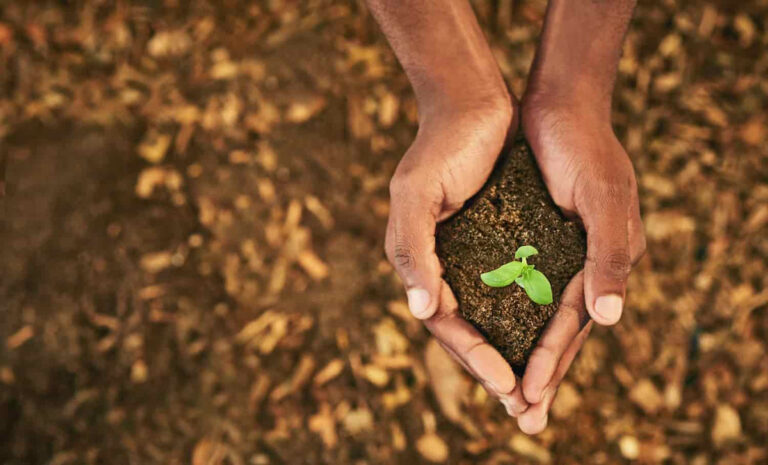As herbal medicine becomes increasingly popular in mainstream outlets, it is important for us to understand the origins and cultural uses that led us to the practices we have today. As enslaved Africans made their way to the New World, their herbal traditions and medicine-making practices were brought with them. During Black History Month, I invite you to explore the use of herbal medicine practices on plantations by enslaved people and how connecting with plant-based allies gave them control over their own health at a time when they didn’t have much control at all.
Medicinal practices on plantations
Healthcare was rarely provided to enslaved people. Instead, many at the time relied on African American folk medicine to treat specific conditions. Many herbal traditions used by enslaved people were not written down, but were passed down orally from person to person. The slaves’ ability to gather herbs for their own treatment is nothing short of brilliant perseverance on their behalf during a difficult time that many of us will never understand.
It is important to recognize the spiritual component of African American herbal medicine. The process of gathering herbs was a ritual that connected enslaved people to their higher power and the nature around them. As historian Sharla Fett noted, the healing ritual helped “maintain good relations between living persons and the world of ancestors and spirits.” In a time as grim as the early 17th century for Africans, they found identity and revelation in plant medicine.
The beauty of folk medicine lies in the simplicity of its formulations. Enslaved people did not have access to alcohol or other goods like the plantation owners. The time and resources required to make tinctures – an extraction of plant compounds with alcohol – were not available to the slaves. They resorted to using water extractions for most of their drug production. Water infusions are among the simplest to produce and are timeless when making decoctions or herbal teas. Decoctions made by boiling vegetable matter and topical poultices are among preparations that enslaved people used. The innate wisdom required to locate, identify and use these plants is one of the greatest gifts of knowledge shown by humanity.
Three plants traditionally used by African American herbalists
Bonsetor Eupatoriumperfoliatum, is characterized by its long leaves, which taper to a point, and its striking white flowers, which grow in small clusters. Boneset, a beautiful plant from the daisy family (or Asteraceae), is traditionally used to distribute heat during elevated body temperatures. Boneset’s bitter properties can improve appetite and digestion and support the organs of elimination by increasing circulation. Boneset is also a powerful immune supporting herb. The availability of Boneset and its ease of propagation made possible the cultivation of this botanical at home, contributing to its widespread use on plantations.

Bonset
Perhaps one of the most stunning and striking plants, Mulleinor Verbascum thaspus, has not only a medicinal purpose in folk medicine, but also a spiritual purpose. Known for its fuzzy, wool-like leaves, Mullein forms a basal rosette or leaf structure as a base during its first year of life. As Mullein matures, it will form a stem, from which bright yellow flowers will sprout. This stem can reach a height of up to 2.5 meters high. Mullein has traditionally been used to support the respiratory tract and is often consumed as a tea. When taken before bedtime, Mullein is believed to create a connection between the current and ancestral worlds, creating a path of communication during dreams. In addition to these uses, Mullein was also burned as an incense, smoked, and even used topically as a compress to support a healthy inflammatory response.

Mullein. Photo credit: Brittney Offenburg
Cotton, Gossypium hirsutuma plant that provided reproductive health to enslaved women is also the same plant used to oppress women under harsh working conditions. Gossypium hirsutum allowing women to take their reproductive health into their own hands at a time when medical treatment was rarely offered. Cotton root bark has an affinity with the uterus and was liberating for women in need of reproductive care. The root was often chewed and a decoction was made by boiling the roots and seeds to help with pregnancy or menstrual problems. Cotton, considered a luxury at the time, was a versatile plant that was both useful and harmful. The ability of enslaved women to use this plant in a way that was beneficial to them is another example of the resilience exhibited by women of color during this time.

Cotton
Paying tribute
As herbal medicine becomes increasingly mainstream, I invite you to recognize that many of these practices were powerfully adapted from folk medicine and introduced to plantation owners in the 17th, 18th, and 19th centuries. It is imperative that we respect the wisdom and tradition that comes from African American herbal medicine. In today’s world it is easy to lose sight of the historic indigenous practices of herbal medicine, but I believe it is our duty as modern herbalists to pay tribute to those who came before us.
References
Brittney Offenburg (she/her) believes in empowerment through education. She attended the Colorado School of Clinical Herbalism, where she studied medical herbalism. She is currently pursuing a Bachelor of Science in Nutrition and Integrative Healthcare at Metropolitan State University of Denver. Brittney is a customer journey representative at WishGarden Herbs and a medicinal plant photographer for Adrift Imagery. (@AdriftImagery)
For educational purposes only. This information has not been evaluated by the Food and Drug Administration. This information is not intended to diagnose, treat, cure, or prevent any disease, or to sell any product.
Read further

